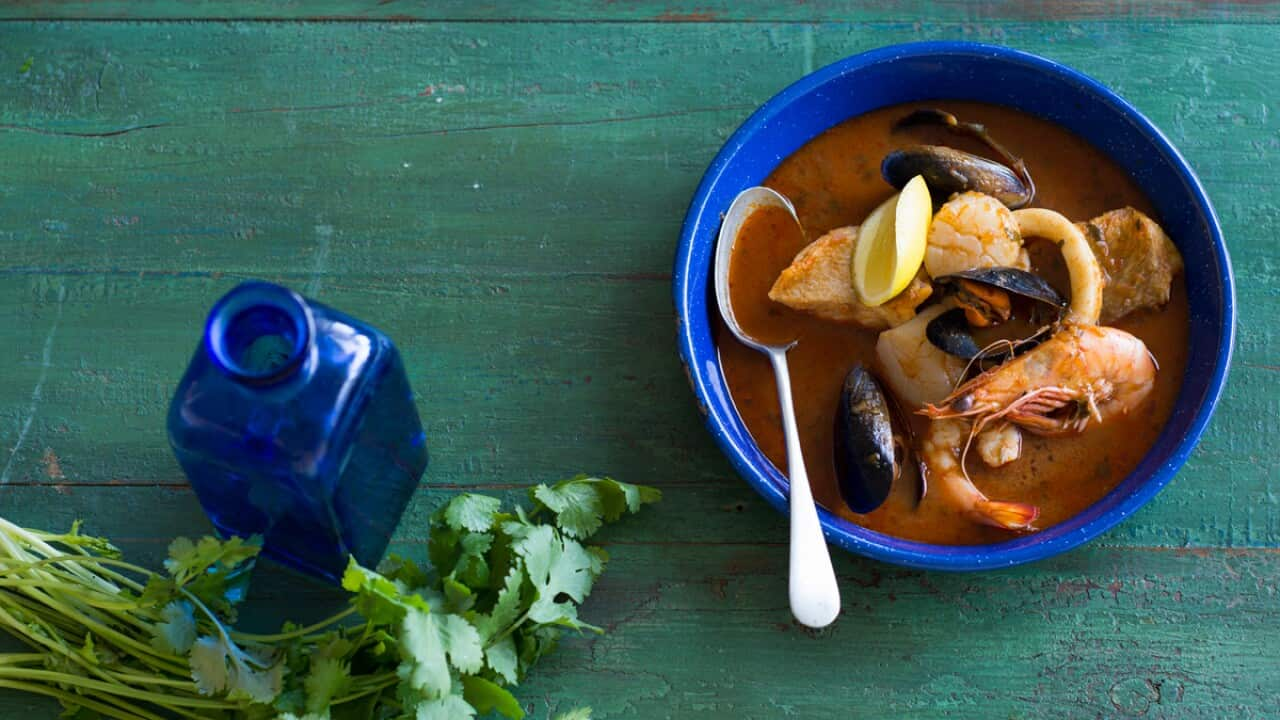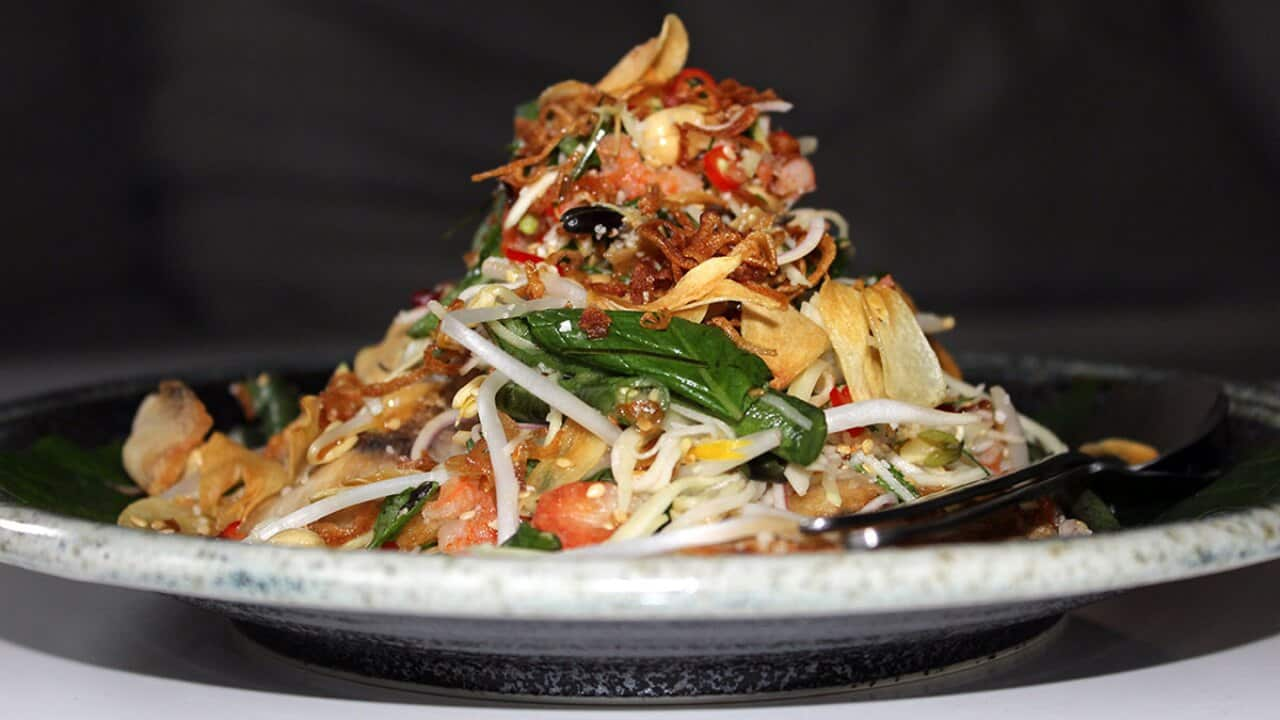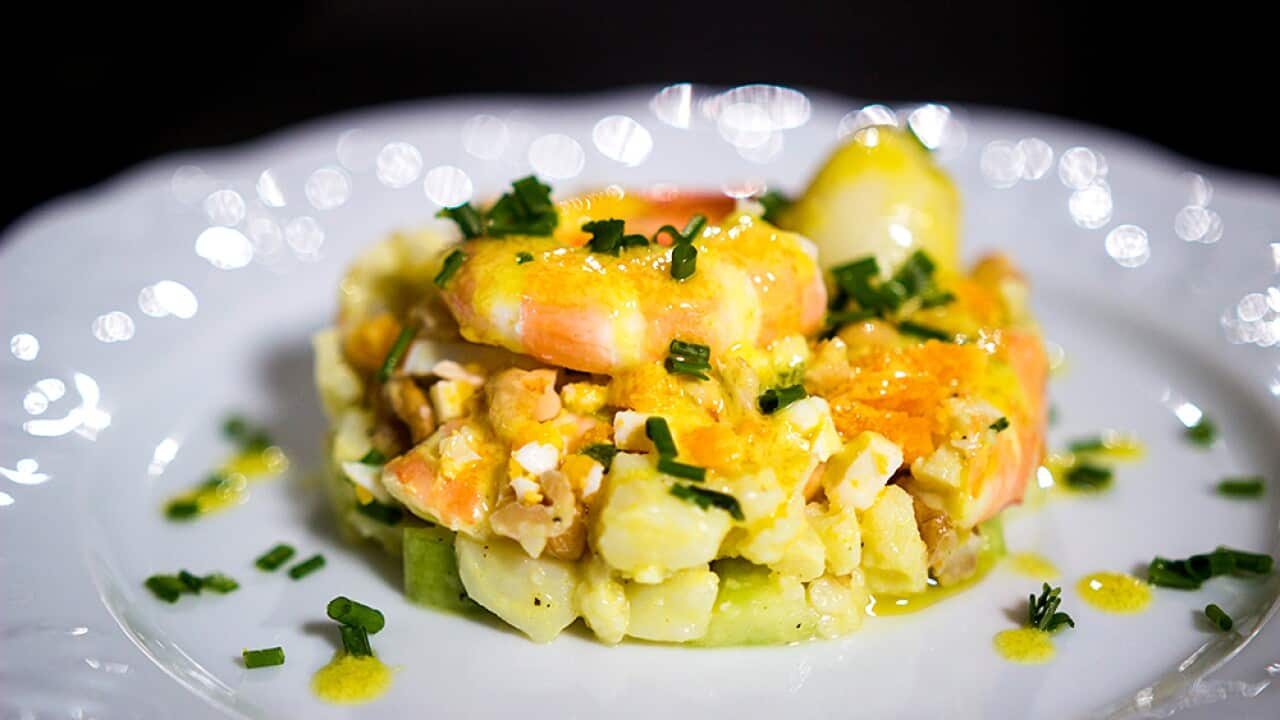If you want to reduce the amount of meat you consume to improve your heart health but aren’t convinced that you’d make the most successful vegetarian, then becoming a pescetarian might be your perfect middle-ground.
As a pescetarian, you’re required to enjoy the splendours of a vegetarian diet and eat all forms of seafood, including prawns, mussels, oysters, salmon and fish (pesce means fish in Italian).
All you need to give up is chicken, beef, pork, lamb and meat from any other land-based animal. You can also include eggs and dairy in your diet, along with staples like grains, legumes, vegetables and fruits.
Kate Rogers, aged 22, tells SBS she became a pescetarian two years ago. “It wasn’t hard to follow a pescetarian diet,” explains Rogers. “I used to eat meat – chicken and beef – before I became a pescetarian but I just lost the taste for it. It came to a stage where I couldn’t deal with the pinkness in steak and couldn’t eat ham or most bacon.
“I didn’t want to become a full vegetarian because it would’ve been difficult to give up eating seafood. And to be honest, the reason I eat fish is because of the health benefits. Seafood is such an important food source as it’s rich in protein and Omega-3.”
Rogers says her diet consists of a lot of salmon and sushi. “At breakfast, I mostly eat vegetarian – egg, toast, tomato – but I’ll have seafood for dinner or lunch. I also have a lot of rice, quinoa, potatoes and vegetables.”
Compared to following a vegan diet, eating a pescetarian diet means there’s less risk of nutritional deficiencies.
Going pescetarian sounds perfectly healthy, given that most Australians of seafood in their diets to reap its nutritional benefits. But is it?
Accredited Pracisting Dietitian and , Aloysa Hourigan, tells SBS that the pescetarian diet may be beneficial for your overall health. But like everything else, Hourigan says, it depends on how you follow the diet.
“Seafood is generally low in saturated fats, high in protein, and are good sources of iodine and zinc,” she says.
“Compared to following a vegan diet, eating a pescetarian diet means there’s less risk of nutritional deficiencies and it’s easier to meet the recommended levels of vitamin B12, iron and zinc. Seafood contains Omega-3 and other fatty acids that have a protective impact on your heart health. It’s also anti-inflammatory.
If you end up eating lots of fried fish and processed vegetarian meals, then the benefits of the diet may not be so forthcoming. Eating a balanced diet is key, as well as paying attention to your iron levels and mercury intake.
Have you checked your iron levels?
Fish contains some iron but not as much as red meat. “If you are were a big red meat eater previously, then suddenly changed to a pescetarian diet, you should keep in mind that the iron content of fish is different to meat," she says.
“A pescetarian may need to increase their intake of iron-rich plant-based foods to meet their iron needs or see a doctor about whether they should take an iron supplement.”
Hourigan adds that you can aid your body’s absorption of iron from plant-based sources by adding vitamin C-rich foods to your plate and diet, overall.
Be aware of your mercury intake
The other cause for concern is that pescetarians may consume too much mercury in their diet if they eat fish – with high mercury levels – every day.
“The advice for the general population is that we should be having fish two times a week. Meanwhile, some pescetarians might have fish twice a day.”
Pescetarians who do their research and are a bit stricter in buying and only eating fish with low mercury levels could eat fish more than twice a week: “but you just have to be careful of the type of fish you choose to eat”.
The advice for the general population is that we should be having fish two times a week. Meanwhile, some pescetarians might have fish twice a day.
According to , pregnant women, women planning pregnancy and young children should only eat flake (shark), marlin, broadbill and swordfish “no more than once a fortnight and should not eat any other fish during that fortnight”.
“Orange roughy and catfish should be eaten no more than once a week, and no other fish should be eaten during that week,” FSANZ says.
These fish may contain more mercury than other species because they are long living fish or, as predators, they eat other fish (and that pushes up their mercury content).
“The general population should also only eat shark (flake), broadbill, marlin and swordfish once per week and no other fish that week.”
Hourigan also advises pescetarians to try to have seafood-free, vegetarian days during the week to lower their chance of having too much mercury in their diet and to promote the sustainable sourcing of fish.
“We don’t want to overfish our ocean either,” she says. “Some fish are in great supply while others aren’t. So choose the seafood you consume wisely – opt for fish which are low in mercury and seafood which are not about to be fished out of existence, as we need to look after our planet.”
is observed on Friday 8 June around the world to celebrate and honour the ocean. Find out more by visiting #WorldOceansDay









